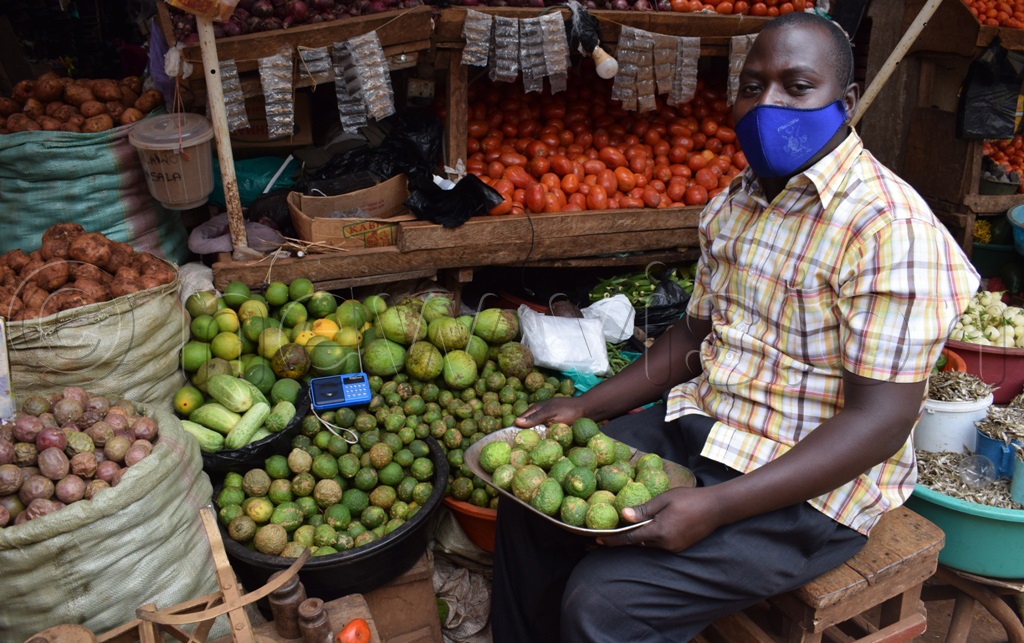
“The number of cars driving past here has dropped by more than half after cars were stopped,” Suzan Nakibuuka lamented.
She grows nakati on over an acre around Gombe on the Matugga-Semuto Road.
“I sell my products to travellers driving a long this road,” she says. To facilitate this, she set up a makeshift shelter where cars stop and people buy the vegetables. But now, she is stuck.
“Most of the vehicles that pass here are trucks carrying merchandise. Those are not my customers,” she says. She has since contacted some wholesale buyers at Matugga market who however buy at a lower price.
Nakibuuka is not alone, there are hundreds of farmers who have been selling merchandise on the road side, but are now stuck. The suspension on the use of private cars is supposed to run for 42 days up to July 31, 2021.
In Goma, Mukono district, Moses Ssekirya is stuck with over 200 prize cocks at his farm. “I used to groom them for those who take chicken for kwanjula functions. I feed them to gain weight and look really attractive to the in-laws but ever since these functions were suspended, I am stuck with my cocks,” he says. He explains that he cannot sell them to ordinary buyers because they are pricey.
“Ordinary buyers pay little money compared to what I put in to grow them,” he says. His prayer is that the suspension on functions is lifted sooner.
President Yoweri Museveni declared the suspension on June 18th.
Agriculture essential
Agriculture was announced as one of the essential sectors that cannot close even as the Covid-19 pandemic ravages through the country. However, farmers think that the interventions should have gone deeper in easing the farmers operations.
“Just like the other selected sectors, the government should also avail stickers or some kind of clearance to drive our cars to the farm,” Grace Bwogi, who has a farm in Rakai, but sells most of her products in Kampala suggested.
To facilitate the sector, trucks carrying agriculture products were also allowed to continue operating, just like stores selling agriculture related products are still operational. Veterinary officers are also allowed to work since livestock, like humans may require instant care sometimes.
“But even then, we are getting challenges especially with selling products. Some people are scared of driving up to the farm to pick products,” says Bwogi.
For those who bring merchandise into the big markets, some are worried about the over -crowding that has persisted even after the suspensions.
“I take my tomatoes to Kalerwe market once a week but the place is too crowded. You may not know who is sick and who is not sick. It is a collection centre for everybody,” Charles Kitaka, who comes from Semuto says.
How to ease operations
- Get contacts of as many possible buyers as possible. In order to sell, all you do is call them and tell them what you have and intend to sell.
- Have contacts of as many transporters as possible so that if one or two are not able to come and pick the merchandise, the third is available.
- If you are many farmers in an area, you can hire one truck to deliver your product to the market and then get one of you to follow upon payments since transport is currently such a big challenge.
